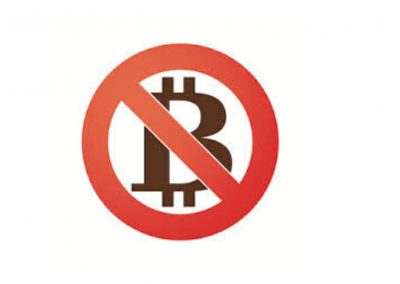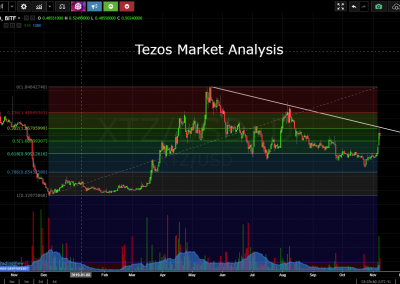Blockchain technology is being heralded as the greatest invention since the internet itself. While, in some cases, this may be correct, the blockchain isn’t a fix for every industry in existence.
Because of the hype surrounding this new technology, we have startups trying to put everything they can on it. That said, a majority of these projects won’t go anywhere, because the idea isn’t a unique take on blockchain technology.
Hype vs. The Reality of Blockchain Technology
As mentioned, we believe that the blockchain and cryptocurrencies are a fascinating invention. However, it’s only revolutionary when placed in its targeted industries.
For example, the blockchain is ideal for storing medical records and other vital pieces of information. As a decentralized distributed ledger, a simple record has every place being on this revolutionizing technology. The blockchain is immutable, and it cannot go down – the perfect next step for data-keeping.
Yet, as is the case even with centralized record solutions, the information is input only by humans. Nobody is free from human error, and the false input data is set in stone. Bad actors also tend to produce inaccurate information on purpose when it benefits their ulterior motives. No technology, not even the blockchain, can prevent that.
A warehouse manager may lie about where some products came from or how long they’ve been sitting there. Supply chain owners can still keep some product for themselves or not record it at all.
In fact, the term “blockchain” is such a buzzword that some projects will mention it before developing it. There have been cases where a team claims to be blockchain-based before even having a blockchain developer on staff.
Terrible Use Cases
To put it simply, there are some poor blockchain technology projects with no substantial use cases. Without naming names, let’s delve into a few examples:
Legality
Some blockchain startups claim to be a jury or legal dispute service. By utilizing smart contracts, the projects provide a way for people to sue each other over jobs gone bad.
With each lawsuit, the governance system allows users to “vote” on who is right. Whoever his the highest votes wins the case and the smart contract will automatically release the funds. This idea works on a technical level, but it is also relying on the goodwill of other human beings.
A majority of the time, humans will make choices based on personal gain. For the jury to participate, must they receive payment for their actions. Yet, most projects provide more to the winning party. This creates a biased viewpoint for a supposedly unbiased group. While the blockchain can work impartially, it is naive to expect humans to do so.
Pricing
There are those projects that claim cheaper implementation of systems and ideas. This is blatantly false.
A significant barrier in the way of blockchain technology is how expensive it is to install. Establishing nodes and proof-of-work/stake systems isn’t cheap. It takes time and money to do so.
On top of this, for a project to have value, it needs investors. Occasionally, a blockchain startup will claim to give away tokens for those who cannot afford it. The idea is similar to that of a Universal Basic Income, in which every citizen is paid basic wage via the government.
However, if this is done, the coins of a project are virtually worthless. The reason Bitcoin and other currencies have value is that there was work put into getting them. Bitcoin’s proof-of-work system is built entirely around this concept, and it works fantastically.
Tokenized Anonymity
The blockchain is a digital space for tokenizing physical assets. Sort of like the internet nowadays, we can put anything that we’d like on this digital ledger. Though, as mentioned, this idea still relies on human decency and verified information.
Technically, someone can represent a fake entity on the blockchain and receive funding for it. Without some central authority to verify its existence, this person could take that money and walk away. Due to the anonymous nature of blockchain, nobody would know the better.
Tokenizing everything in existence is a romantic idea, but an unrealistic one. Any system that automatically takes in whatever we throw at it is one that must be carefully monitored.
A Fundamental Lack of Understanding
As it stands, blockchain projects will claim to revolutionize the industries they are in. They will use all sorts of buzzwords like immutability and anonymous, without knowing what it takes to implement them.
The entire idea behind blockchain technology is that it relies on human input. That input is built around incentivizing good, hard work in a trustless ecosystem. You’ll find projects that assume the hard work will come without a push or reason for it. Bitcoin only works because miners are paid for it. Ethereum works because stakers get more power, and consequently, more pay.
Immutability comes at a high cost. As does establishing nodes or scaling upwards. Entrepreneurs with little knowledge of the tech will assume these features all come with the package. This will break them and your investment.
Getting in early on what could be a revolutionary new technology is exciting. It’s understandable why so many people are looking to jump in. Yet, with such a fear of missing out, these same people don’t fully understand what they are getting into. As a result, we have projects that have no reason being on the blockchain whatsoever. Investors are easily seduced by sweet sounding words and exciting tech. Everyone loses in this case.
The frequency of this, of course, will whittle down as time goes on. A majority of these projects won’t succeed over the next couple of years. Only the strongest, most well-built ones will make it through. In the world of the blockchain technology, it’s important to research different startups and see if there are solid use cases. Otherwise, we’ll see a bunch of sad investors on top of a variety of failed projects.










